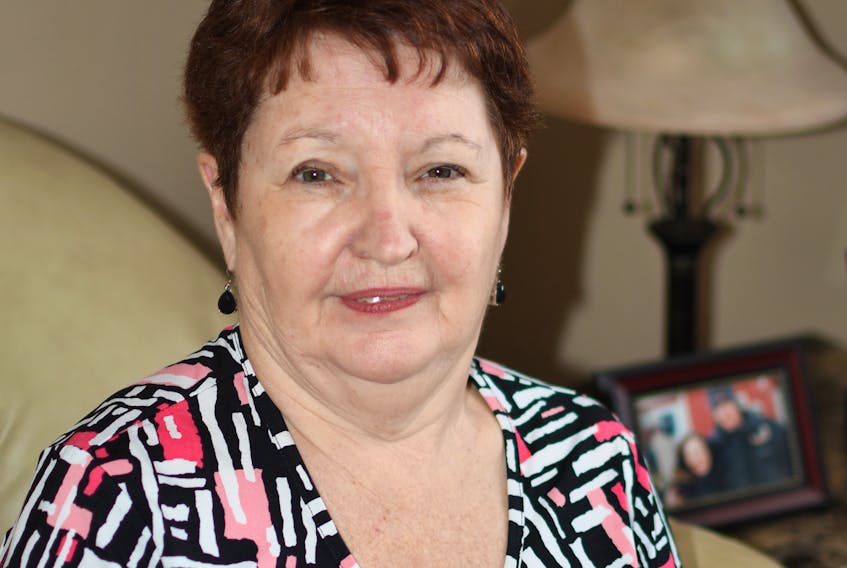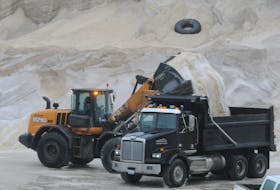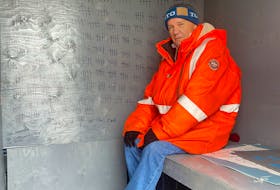Editor’s note: The one thing we all have in common is that we’re getting older by the day, and as we age, our priorities and lifestyles change.
In time, many of us will have to deal with similar issues — staying independent and active, maintaining a social life, getting involved (or staying involved) in volunteer work and community advocacy, finding the right housing fit for our lifestyles, and making the transition to retirement.
In this six-part series, The Telegram’s Ashley Fitzpatrick talks to people about what they’ve learned from their own experiences.
Noreen Careen knows exactly what she’d say if she had the ear of every person in the province for just a moment, apart from repeating the drumbeat for more housing options for seniors in Labrador West.
“What I always try to encourage is to try to stay active, whatever that looks like. It’s important to stay active, it’s important to stay connected,” she told The Telegram in a recent interview.

Careen is a longtime advocate, a member of the Provincial Advisory Council on Aging and Seniors, and chair of the Twin Cities Seniors Club. She said staying active and connected is her recommendation, but she knows that’s harder to do in many of the province’s rural communities than in St. John’s.
“People get isolated,” she said. “I mean, let’s face it, Labrador West is a long, cold winter. Like today was minus 46. So, if you’re a senior and you don’t have transportation, you don’t have somewhere to go, well, you know, you could be shut in for a long time.”
She said the province has made “age friendly” grants available in recent years to improve public transportation in municipalities and offer more activities at the municipal level. However, starting up an activity or introducing a local bus service is about more than just landing a grant. Sustaining it long-term is something different altogether.
“They always throw it back to volunteers to do,” Careen said.
She said the twin towns of Wabush and Labrador City in Labrador West are strong supporters of their local 50 Plus club. But even the most sympathetic and best-intentioned municipalities are challenged to offer many services on their own. Careen used a new bus service as an example.
“They’ll kind of say, well, you know, you could probably get a van,” she says. “I’m like OK (…) what’s the good of a van? You have to be able to sustain it, you need insurance, you need drivers (…) it’s no good to say, ‘Here, and you carry on the rest.’
“It’s no good to give you a vehicle without gas,” she said, referring to other long-term considerations.
As for organized activities, is there any recreation infrastructure in the community? Are there any existing volunteer groups, any meeting places? How much fundraising can they reasonably do? What can they offer?
“Free” is a magic word, Careen said. It’s a draw for adults on a fixed income. Free events get offered at times in her area, but nothing actually comes for free.
She said there’s a $10 per person charge to be part of the Twin Cities Seniors Club and there’s fundraising that’s tackled on top of that. A lot of people express interest in things like community potlucks, but there’s food to be provided for those events, and a list of requirements from cutlery to paper towels for cleanup. At Christmas, 165 people attended an event arranged by the club. “And if you’re doing supper, doing whatever, it gets costly,” she said.
“They always throw it back to volunteers to do.” — Noreen Careen, community advocate
Laura Tamblyn Watts with the Canadian Association of Retired Persons (CARP) said there’s a common narrative that says, generally speaking, older people get lots of things. But if you look at recreation, from advertising to organizational support, it commonly targets children and youth.
“Not to say that we should be pitting — and we shouldn’t pit one generation against each other — but we have more older people, being more people over the age of 65 in Canada, than we have age 15 and under,” she said. “And yet if you look at where services are deployed, they don’t add up to active supports and active aging and active wellness.”
Government-funded age-friendly grants are a start. But they should also be kept in perspective.
In April 2018, for example, under the Age-friendly Newfoundland and Labrador Community Grants Program, the provincial government issued a news release listing grants to 12 municipalities totalling $90,000. The Town of Cormack received $7,800 to support a salary for a community program co-ordinator, for example, while Branch received $7,000 for materials for a sewing program.
The $1 million more recently spent on a consultant’s report on economic diversification would be enough for 11 equivalent grant program announcements. The $125,000-a-year climate change co-ordinator position the City of St. John’s announced is actually costlier than all the supportive grants announced that day in 2018 for the entire province.
It’s not to say the other expenditures are not required or important. There are free debates around where tax dollars should be spent. But not all announcements are equal.
And Careen emphasizes money to support programs and events is just a piece of what it takes to make things work. There’s also space. During the 2015 election campaign, Premier Dwight Ball made a stop at her club’s meeting. The Telegram was there. It was tight quarters in the usual spot — a house in the community provided by the municipality for the purpose, where accessibility and parking were issues. The club has since outgrown the space and thankfully they have been offered an area for meetings in the basement of local church, which is accessible and has its own kitchen.
Not every rural hub is even that lucky.
Local volunteers, including municipal councillors, also have limits. And election-year rhetoric at the provincial and federal levels should take that into account.
“They’re all gung ho for getting seniors to do this, get ’em together, but I’m like, how do you expect seniors to do that?” Careen said.
Careen attended the pre-budget consultations in her area, to advocate for long-term care and care home spaces in Labrador West — issues that are important to her.
“I know I worked with a couple a few years ago, her husband had had a stroke and they just didn’t have the rehab that he needed. So, what we had to do, they had to put their house up for sale here and we had to package them up and send them – I think their first stop was a long-term care home in Springdale,” she said.
They had no connections to Springdale.
“No, no, lived here all their life,” Careen said. “But you’ve got to go where there’s an opening, if you’re lucky enough that there is an opening somewhere.”
She said MHA Graham Letto and Health Minister John Haggie are both well aware of the needs.
SERIES
- GETTING OLDER: Staying in the game
- GETTING OLDER: The drive for independence
- GETTING OLDER: Somebody to lean on
- GETTING OLDER: Lending a hand
RELATED









